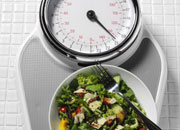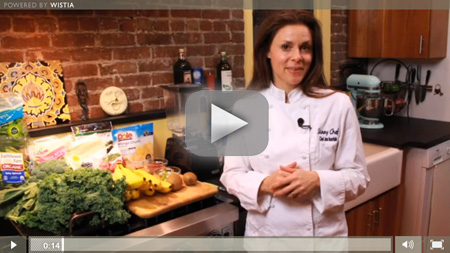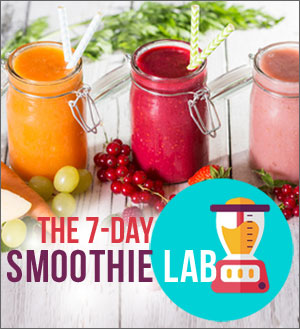Welcome to the second day of your weeklong heart-health lessons. I hope that you enjoyed yesterday’s insights!
Today, we’re going to talk about the one thing that anyone can do to help change their eating habits for good.
It’s simple, but so powerful…
Think before you eat!
When you take the time to really consider what food you’re about to consume, you’d be surprised at what happens. You won’t be sitting on the couch, mindlessly noshing on a bag of chips while watching television, or eat an entire jumbo-sized bag of popcorn at the movies.
Instead, you’ll be mindful of every bite you take, and really learn to appreciate the food that’s going into your body.
Making smarter, better choices about food doesn’t mean that you have to deprive yourself — far from it!
The key is to select food that’s good for your body, as well as your soul.
What Does That Mean?
It can mean preparing food for yourself (refresh your memory by reading yesterday’s lesson), rather than going out to a fast food or chain restaurant for dinner.
It can mean growing your own vegetables and herbs, so that you can actually be part of not only preparing your own food, but harvesting it as well.
And it can mean taking the time to sit down with family and friends to enjoy your meals together, and strengthening those bonds, while nourishing your body.
Home-Cooked Meals Are Key
I know that I talk a lot about the importance of cooking and eating at home. But I really do believe that it’s one of the keys to healthy living. When you prepare your own meals, you know exactly what’s going into every dish you eat, and you control the amount of calories, salt and sugar that you consume.
It’s one of the keys for those of us who are trying to live a heart-healthy life.
Prepare, Prepare, Prepare
Although it’s not always possible, I try to plan each meal that I eat. That doesn’t mean that I can never indulge in an unexpected treat, or that I can never change my mind and eat something different, but I find that it helps me if I have some idea of what I’m going to eat throughout the day.
For instance, if I know that I’m going to have a lot of protein at dinner, then maybe I’ll load up on veggies at lunch. Planning my meals in advance can also help me avoid hunger pains, which often lead to mindless snacking.
If you find yourself snacking a lot, be sure to read my blog post about The Secret to Quitting Junk Food…
I also try to take a moment before each meal to think about how hungry I really am, and how much food I want to eat. I find that asking myself those two simple questions really slows me down, and stops me from overeating.
Paying attention to what you’re eating is critical. When you do this, you focus on the flavors and textures of the food, as well as whether or not they’re actually nourishing you, and not just filing you up.
It’s especially important to take a few minutes to register what you’re eating when you’re at a restaurant, as portion sizes have monumentally expanded and some dishes can carry up to a day’s worth of calories. Taking a 30-second pause prior to picking up your fork is the first step in eating less at your meal.
It’s such a simple concept, but trust me — it really works. So take your time when you eat, and be mindful of the food that you’re putting in your body. You’ll notice a difference!
Thank you so much for joining me again today! Tomorrow, we’ll talk about one of my all-time favorite subjects – Superfoods!
– Jen


 Are you ready to look better, feel more energized, and get back that youthful feeling you remember having as a kid? I can help you on a journey that will change the way you eat — for good. My
Are you ready to look better, feel more energized, and get back that youthful feeling you remember having as a kid? I can help you on a journey that will change the way you eat — for good. My 














 As a healthy cooking expert, health coach and TV host,
As a healthy cooking expert, health coach and TV host, 


